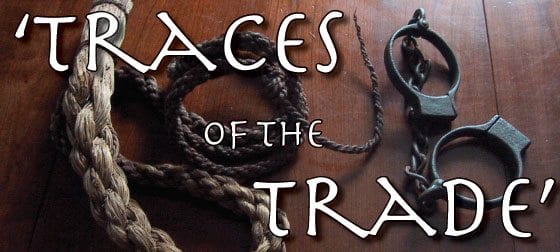
White New England filmmaker traces her own roots in the slave trade
This year marks the 200th anniversary of the U.S. abolition of the transatlantic slave trade, a bicentennial that has some blacks and whites trying to reconcile their respective places in American society.
Katrina Browne is one of them.
The filmmaker, who is white, thought that because her family was from Rhode Island, there was no way that her ancestors could have been involved in slavery. But when she read a book given to her by her grandmother, Browne learned that her family was not only involved, but were the largest slave trading family in the United States.
Her latest film, “Traces of the Trade: A Story from the Deep North,” premieres Sunday on WGBX as the opening entry in the 21st season of the documentary series “P.O.V.” In it, Browne documents her struggle to understand her family’s past and how it relates to race relations in today’s America.
To better grasp that past, Browne — a direct descendant of Mark Anthony DeWolf, the family’s first slaver — invited 200 other family members to retrace the triangular trade route from Rhode Island to Ghana to Cuba and back.
However, she said, most of her family didn’t support the trip.
“There was one relative who was particularly against the concept of the trip,” Browne told the Banner in a recent telephone interview. “He was concerned about how his black co-workers would treat him. He was also concerned about the usefulness of rehashing history.”
In 2001, Browne and nine relatives embarked on their journey from their hometown of Bristol, R.I., to look at the various business ventures that made the DeWolfs successful in the community. The DeWolfs conducted slave trading over three generations, beginning in 1769 and continuing until well after the U.S. banned the practice in 1808. The family brought over 10,000 African slaves to the Americas; it is believed that half a million of their descendants are alive today.






